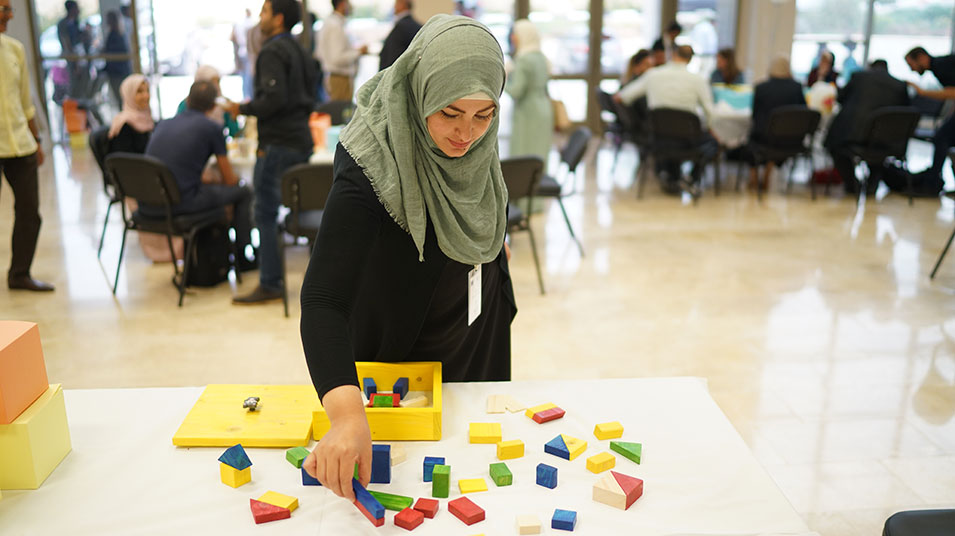B-Hub celebrates two years of supporting startups, microenterprises
Birzeit University’s B-Hub, funded by the European Union, celebrated its second anniversary of supporting innovation and entrepreneurship in a special ceremony on October 28, 2019, attended by a delegation of sixteen journalists and media persons from EU agencies.
Since its inauguration in 2017, the B-Hub has supported around 2,471 young beneficiaries who have created new businesses and developed existing ones. It has provided a unique and highly flexible combination of mentorship, access to infrastructure and academia, and guidance in business development processes. Providing an innovative space within the university, the B-Hub aims to nurture ideas and creativity and promotes social and green practices as fundamental methods to manage businesses in a challenging local context that is characterized by ecological hazards, social inequality, and unfair employment practices.
A number of the projects and startups the B-Hub has supported were showcased during the anniversary ceremony. Quick-fire presentations by startups that displayed their solutions were presented to the EU delegation that came to learn about the projects.
Prior to the celebration, the delegation met with Marwan Tarazi, director of the Center for Continuing Education (the administering body of the B-Hub), and Amir Khalil, director of the External Academic Relations office at the university.
Tarazi explained to the delegation the difficult circumstances under which the Palestinian economy has to operate, as Israeli occupation agencies restrict Palestinian access to their natural resources, control all borders, restrict mobility within the occupied territories, and hinder the development of many Palestinian industries by continuously damaging infrastructure and limiting economic development, especially in Area C.
Ninety percent of the Palestinian economy, Tarazi pointed out, is comprised of microenterprises. And even though the prevailing Israeli restrictions and the small market available to local goods constitute severe obstacles to economic development ¾ this market being characterized furthermore by high operating costs, low rates of investment, few incentives, and limited levels of expertise ¾ these enterprises make significant contributions to Palestinian economic growth and development.
Tarazi pointed out that higher education institutions play an important role in building expertise and graduating professionals who can contribute to the economy and sustainable development. Pointing out a number of endeavors from the past couple of years in which Birzeit University aimed to hone the students’ creative and critical thinking skills in a learner-centered, stimulating environment, he praised the B-Hub for tackling the challenges small enterprises are facing while promoting student employability.
Khalil gave an overview of the Erasmus+ program and its impact, the International Credit Mobility scheme, and the participating European partner universities. He expressed the universities pride in these projects “that offer marvelous opportunities to the university’s students, staff, and faculty members. Through these international partnerships, the university community can acquire fundamental skills that support their professional development, boost the students’ employability and transversal skills,” Khalil explained.
At the end of the ceremony, the EU journalists interviewed B-Hub and Erasmus+ beneficiaries.







